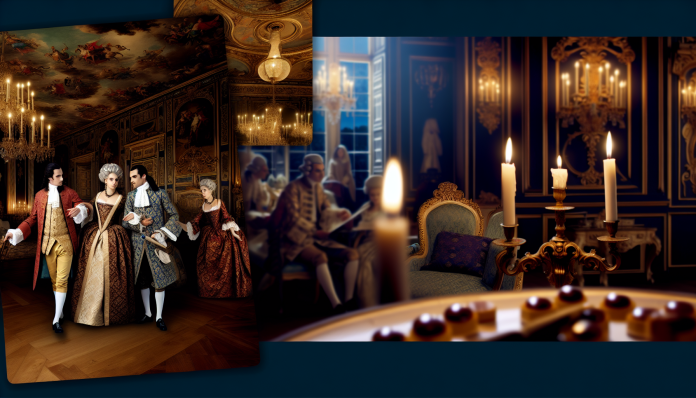Introduction
In the opulent court of 18th-century France, King Louis XV emerged not just as a monarch but as a notorious figure in the annals of sexual scandal. Remembered for his numerous affairs and mistresses, Louis XV’s escapades painted a fascinating portrait of royal indulgence and societal norms during the era. The reigning king from 1715 until his death in 1774, he presided over a court defined by luxury and hedonism while navigating the complex moral landscape of his time, where politics and pleasure intertwined seamlessly.
Context of the Era
The Age of Enlightenment had ushered in unprecedented ideas about individual rights, reason, and liberty, yet the social tapestry of France was marked by rigid class structures and moral expectations. For the aristocracy, particularly the king, sexual liberty was often a symbol of power—one that elicited both admiration and scorn from the masses.
The Scandal
Louis XV’s most infamous relationships included the beautiful Madame de Pompadour and later, the young and enchanting Madame du Barry. His amorous pursuits were more than mere private affairs; they were entangled with political maneuvering and state affairs.
-
Madame de Pompadour (1750-1764): Not only was she the king’s beloved mistress, but Pompadour wielded significant political influence, playing a role in appointing ministers and shaping policies. Her relationship with Louis XV was famously captured in portraits, emphasizing both her beauty and her vital role in his court.
- Madame du Barry (1763-1774): As Louis’ last mistress, du Barry was a symbol of the king’s declining political power. Originally a courtesan, she was both a source of scandal and fascination, embodying the excesses of the French court.
The exposure of Louis XV’s intimate liaisons often led to public gossip and speculation. Political pamphlets illustrated the king’s escapades, while the more conservative segments of French society were openly scandalized. One contemporary commentator quipped, “A king of France is not merely a man, but a representation of virtue; thus, can he not hold the character of debauchery without scorn?”
Moral and Cultural Analysis
The public’s reaction to the king’s indulgence was a blend of intrigue and disdain. The elite may have turned a blind eye, while the lower classes reveled in the gossip. Yet, the duality of admiration and ostracization served to reflect on the convoluted values of French society.
Consequences were multifaceted—while Louis XV thrived in his sexual freedom, the social fallout included the waning of his reputation and prestige. The court’s extravagance and the king’s notorious lifestyle eventually contributed to the wave of discontent that sparked the French Revolution just a few decades later.
A Modern Perspective
Today, had a world leader been embroiled in similar sexual scandals, public outcry would likely erupt around themes of integrity and accountability. In contrast to the toleration or even celebration of scandal in Louis XV’s time, contemporary standards have shifted towards the expectation of transparency and moral character in leadership.
- Modern-Day Reactions:
- Public Outrage: A leader caught in a scandal often faces serious backlash, potentially resulting in resignation or formal inquiry.
- Political Ramifications: Modern societal norms emphasize the separation of personal conduct from professional duty, yet scandals still complicate public perceptions and create polarized responses.
In the ever-evolving landscape of societal expectations regarding morality and power, the history of Louis XV serves as a captivating lens through which we can examine our values concerning leadership, passion, and the scandalous intersection of the two.

